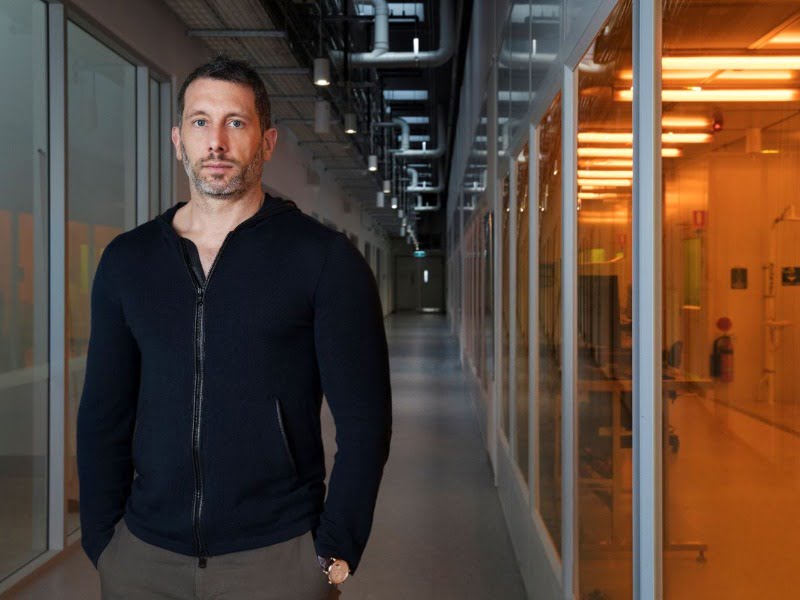Sydney quantum startup Q-CTRL on Tuesday added an all equity $87 million raise to its multi-year Series B, taking the round past $166 million and bucking fears of a “quantum winter” or ceiling on the local sector.
The hardware and software firm will use the money to scale up research and development while growing its marketing team as it expands around the world with several products and services already in market.
Founder Michael Biercuk says the record raise shows Australia has world leading companies that can seed a vibrant local sector if the government starts matching its rhetoric with investment.
“All the hand wringing about, ‘Oh, can we do anything in Australia? Do we need a big company to come and save us?’ Come on! We are setting world records for the quantum sector and with the business we are setting Australian fundraising records,” Professor Biercuk said.

Q-CTRL first announced its Series B in 2021 and has added expansions to the round in 2023 and 2024. The latest announced on Tuesday adds US$59 million in new capital, making it the largest Series B in quantum technology history and one of the biggest Australian raises of 2024.
The Series B-2 all-equity funding round was led by global late-stage venture firm GP Bullhound. It also includes the venture arms of Lockheed Martin, NTT and Salesforce, as well as Main Sequence Ventures and rugby legend John Eales returning.
Analysis of global quantum investment found it peaked at $2.2 billion in 2022 and then nearly halved in 2023, prompting warnings of a “quantum winter” for investment becoming a handbrake on innovation.
The fears aren’t well placed, Professor Biercuk said.
“This is a very substantial investment led by international financially motivated investors,” he told InnovationAus.com.
“It is predicated on confidence, not just in Q-CTRL’s vision. We’re a revenue generating company. This is not purely a story that I tell for 20 years down the line. This is about what is happening in the sector right now, and what value Q-CTRL specifically is capturing now and into the future.”
Founded in 2017 as a University of Sydney spinout, Q-CTRL offers an infrastructure software layer that can improve the performance of current quantum platforms, and is already integrated with market giants like IBM.
It also operates a sensing division that is supplying Australia’s Defence forces with hardware for GPS denied navigation.
The growth of Q-CTRL and fellow bright spots like Diraq and Quantum Brilliance comes after sustained investment in their underlying research and a national push on a quantum industry last year.
But Australian governments have not followed the rhetoric with the public procurement needed to expand the local sector, according to Professor Biercuk.
“Where we are not world leaders as a nation is in growing lots of businesses and continuing to scale them. And so one needs to look past the individual cases of my colleagues who are very, very strong in what they’re doing.”
Professor Biercuk contrasts Australia’s small collection of well backed companies to markets like Israel where dozens of firms have shot up after its national quantum plan came with hundreds of millions in government investment.
“The fundamental difference is all of those companies in Israel were founded immediately after the Israeli government announced a massively funded national quantum strategy. As soon as the opportunity [was identified] the money was there, the companies were built in response.
“And Australia has decided not to make investments in the local industry so far. That is what is holding us back.”
Australia launched a national quantum strategy in early 2023 to translate decades of investment in fundamental research into economic opportunity. But only small grants and a handful of discrete Defence procurements have followed.
Australia’s strategy included an ambitious goal to build a first-in-the-world fault-tolerant, error-corrected quantum computer onshore and the federal and Queensland governments quickly followed up with a $1 billion investment in US firm PsiQuantum.
The California-based company founded by two Australians is establishing a regional facility in Brisbane and says it can build the device in less than six years. It will also add more than 400 highly skilled local employees, work with Australian universities and provide some access to other quantum companies.
Professor Biercuk says the beach head investment in PsiQuantum needs to be rounded out if Australia is serious about being an important part of the quantum ecosystem.
“We need to actually invest at scale, at a national level… to match the ambition, we’re all working towards securing that public sector support that every other nation which is a global leader in the sector pursued.”
Professor Biercuk has questioned the underlying driver of the massive public investment: that Australia needs a big global firm to deliver scale and spillover benefits. He’s also bristled at comments from the nation’s chief scientist that Australia is a quantum “kindergarten” without clear opportunities to grow.
“This is not a quantum kindergarten… This is a world leading place where amazing businesses are built,” Professor Biercuk said.
“We’re excited to see the local community, both among investors and among government, start to look at us and recognize the maturity we bring to the table globally.”
Do you know more? Contact James Riley via Email.

